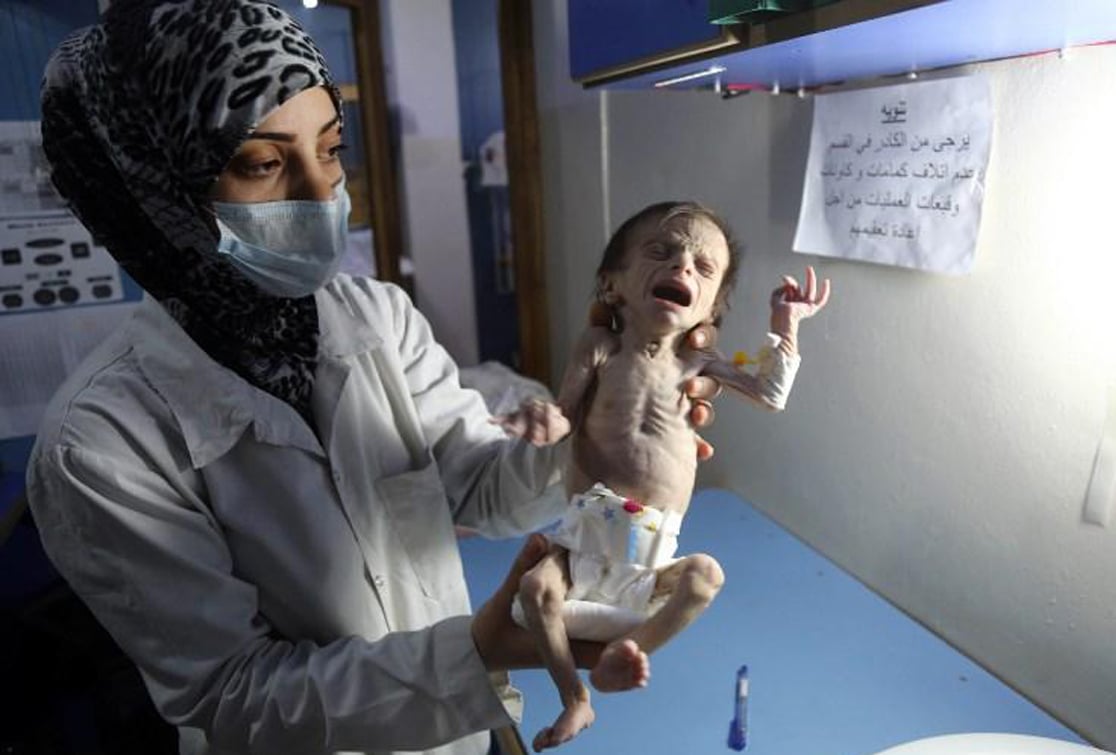
Soruce: AMER ALMOHIBANY / AFP
Syrian NGOs signing below received the news about de-escalation zones agreements between conflict parties in and around E. Ghouta in rural Damascus with great cautious. While the agreements stated ceasing military hostilities and increasing humanitarian access, they didn’t define exactly what is meant by this increase, nor did it mention any urgent necessary measures to alleviate the suffering of trapped civilians.
The humanitarian situation in Eastern Ghouta today had reached a catastrophic level. Around four hundred thousand people are suffering from a tight siege in a nearly full absence of commercial and individual movement to and from the besieged Ghauta. The United Nations in Damascus is also suffering from a catastrophic failure in humanitarian access to the besieged rural Damascus, mainly due to the frequent refusal of Damascus government of giving the necessary permissions and also the numerous obstacles, which, in most times, delay or hinder the delivery of humanitarian convoys that have already been approved. Moreover, humanitarian convoys already prepared based on needs assessment are subject to complete changes by Damascus government officials, including removal of many essential life-saving materials. For example, antibiotics are being omitted from medical aids. In addition, humanitarian response analysis reports and access reports to besieged people in Syria do not reflect their living conditions and do not evaluate it as evidence of the effectiveness and the quality of the humanitarian convoys. Rather, they rely on the number of delivered convoys and the number of people in need these convoys are enough for.
A family in besieged area does not need a food basket once a year, but according to needs assessments, the needs are very severe and cross-sectoral. Inter-Agency convoys delivery patterns show they are very far from covering those needs. Moreover, humanitarian needs of the besieged population are not limited to goods and gifts in kind, but are in need of various humanitarian programs such as livelihood, agriculture, psychosocial support and different protection programs. Humanitarian NGOs working in Eastern Ghouta across the border find themselves alone to provide all these programs and to fill the gaps in the context of a severe resource shortage and continuous decrease in funding cross-border humanitarian operations.


